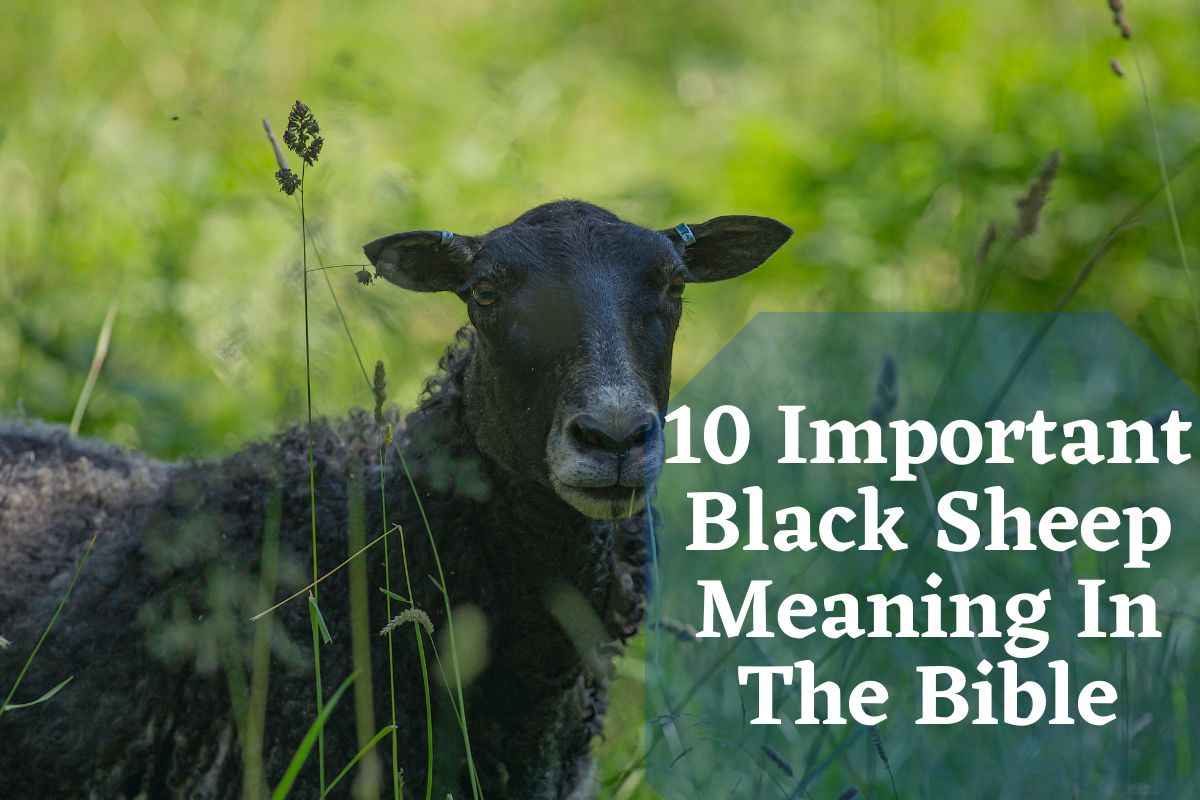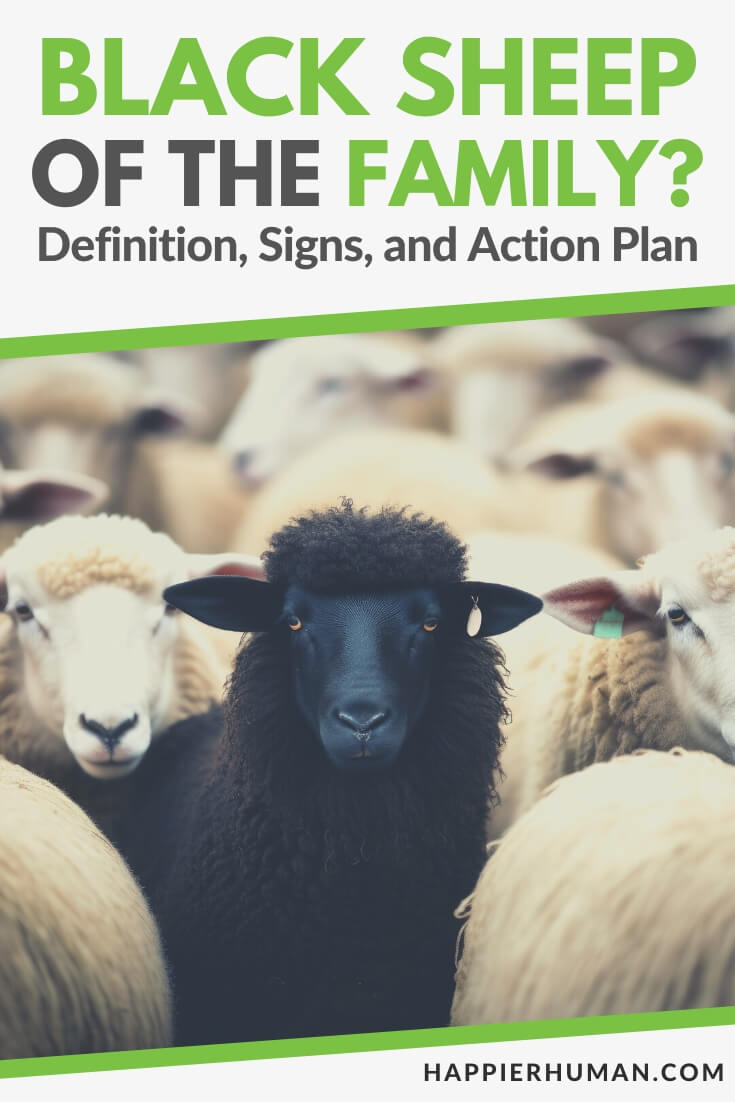Black Sheep: Meaning, Origin, And Usage Explained
Are you familiar with the phrase "black sheep"? Its a common idiom used to describe an individual who stands out from the crowd, often in a way that is perceived as different or even undesirable.
The term "black sheep" acts as more than just a descriptive phrase; it delves into the complexities of human dynamics and the subtle ways we judge those who deviate from the norm. The expression refers to a member of a group, frequently a family, who is considered to be an outcast or a misfit. This individual may display behaviours or hold viewpoints that differ considerably from those of the rest of the group, resulting in their categorization as the "black sheep." The origins of this idiom, its usage, and the variety of contexts in which it appears are all important aspects of its enduring appeal.
Here's an example that explains how to use "black sheep" in a sentence, "Despite her family's traditional values, Sarah, with her unconventional career and rebellious spirit, was often seen as the black sheep of the family."
The "black sheep" concept isn't limited to familial connections, however. This psychological idea also applies to the ways in which individuals within groups assess and judge members who differ from them. Ingroup deviants are judged more harshly than outgroup deviants, which is a phenomenon known as "ingroup favoritism." This tendency sheds light on how groups establish and maintain their identities by ostracizing those who do not conform.
The idiom "black sheep" also delves into the emotional terrain of the human experience. It captures the feelings of those who feel like they don't belong, who are different, and who are perhaps misunderstood. At the same time, it reflects the difficulties groups have in accepting those who deviate from what they consider "normal." This idiom, therefore, reveals a great deal about how human society works and the standards and norms that we value.
Historically and culturally, the term "black sheep" has its roots in the 18th century. The term originated from the fact that black sheep were less common than white sheep, and their wool was less valuable, they were often isolated from the flock. Over time, the phrase evolved to describe a person who stands out negatively within a group, much like how a black sheep would in a flock of white ones. The phrase became a metaphor for those who were considered outcasts or misfits, and it has remained a strong and relevant metaphor to this day.
The term "black sheep" has evolved over time, adapting to cultural and social transformations, although its core meaning has remained constant. It has found its way into literature, movies, and music, becoming a potent symbol of nonconformity and independence. The "black sheep" represents a person who challenges established conventions, pursues alternative paths, and dares to be different in a world that frequently values conformity.
In various contexts, the "black sheep" can embody the spirit of rebellion, representing those who challenge the established order and refuse to adhere to social norms. It can also represent those who are considered a disgrace or a failure by their families or peer groups, demonstrating the social pressure that groups can place on members who deviate. The term serves as a reminder of the variety of human experiences and the complexities of belonging and nonconformity.
The concept of the "black sheep" has a wide range of uses in language, from everyday discussions to more formal contexts. It can be used to describe a person who has done something wrong and brought disgrace or shame to their family, or it can be used in a more neutral or even positive way to describe someone who is different from the rest and has been successful despite their difference.
One should bear in mind that the phrase "black sheep" carries a complex emotional burden. While it may be employed humorously to describe someone who stands out in a group, it can also have bad implications and denote shame, disappointment, or isolation. Understanding the term's nuances is crucial to using it correctly and delicately, and recognizing the impact it can have on both the speaker and the person being referred to. The "black sheep" is still a fascinating figure in modern rock music, where artists use the phrase to express rebellion, introspection, and the complexities of human connection.
In essence, the "black sheep" is a multifaceted idiom that reveals a great deal about human nature. It is a symbol of the oddball, the nonconformist, and the individual who dares to be different in a society that often favors conformity. By delving into the origin, evolution, and meaning of this idiom, we gain a greater understanding of the complexities of belonging, difference, and the human experience.
The "black sheep" is a powerful term that can elicit strong sentiments. It captures the longing to belong, the desire for individuality, and the strain that results when these two sometimes-conflicting needs clash. Examining the "black sheep" offers insightful glimpses into ourselves, the groups to which we belong, and the wider world.
The term can be applied in a variety of contexts, from the everyday to the more formal. It can be used to describe a person who has brought shame or embarrassment to their family. Consider this sentence, "If you have a cousin who seems to be the one troublemaker in your family, you can call her the black sheep."
In conclusion, the phrase "black sheep" is a strong and lasting idiom that continues to be a significant element of our language and culture. It encapsulates the human experience of belonging, nonconformity, and the complex emotions connected with them. By exploring its origins, applications, and emotional implications, we can learn more about ourselves, the groups to which we belong, and the varied, frequently challenging, and endlessly fascinating human experience.
In Christianity, the phrase "black sheep" is often used to refer to individuals who have strayed from the teachings of the faith or who have engaged in behaviors that are not in line with its values. The black sheep can represent the individual who does not conform to societal or religious norms and may be seen as a symbol of nonconformity or individuality.


